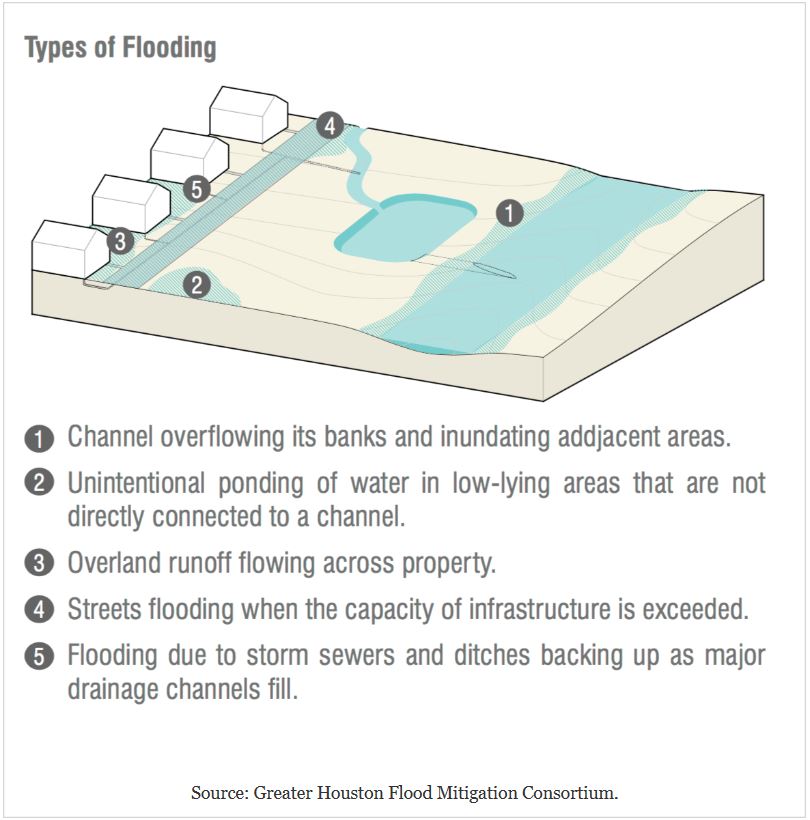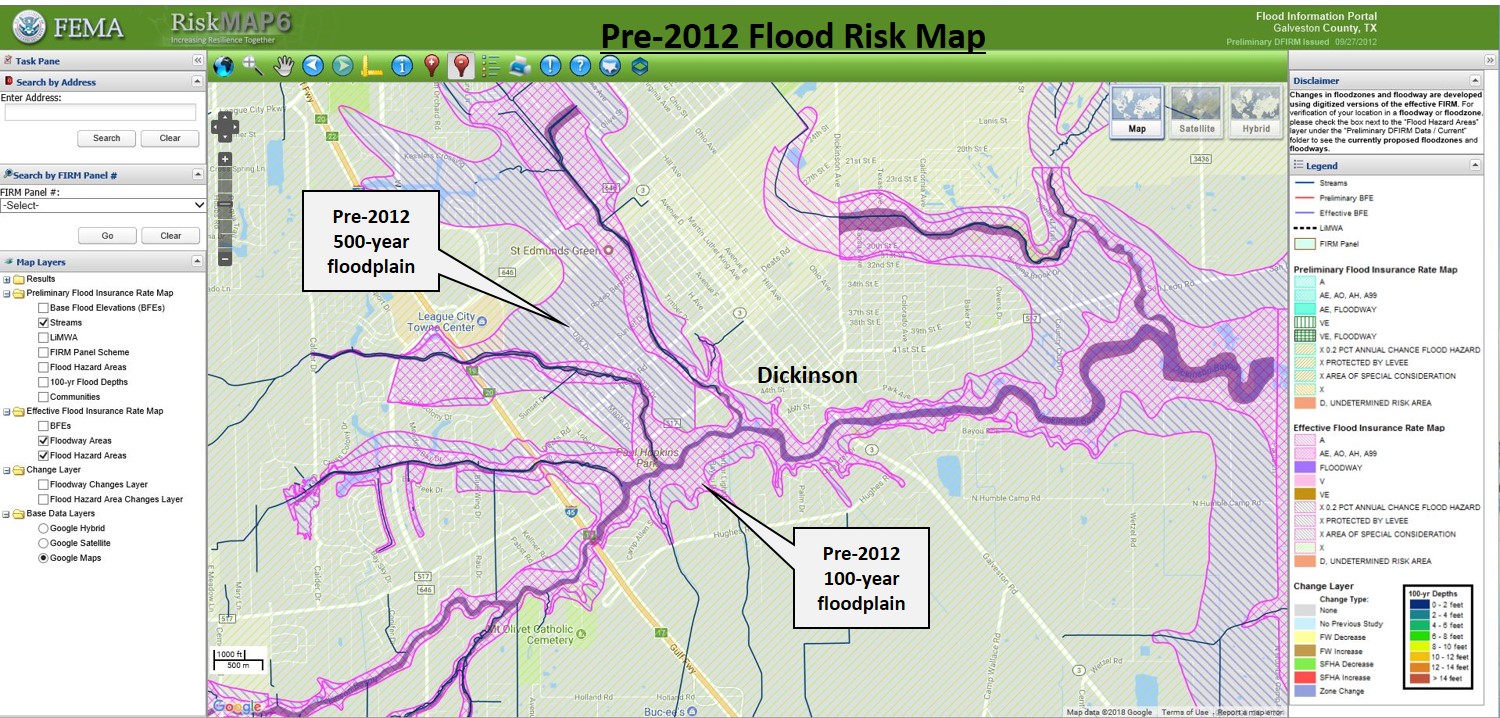Check these four critical risk factors before buying a home
There are many things to consider when making the decision to purchase a home. In low-lying coastal areas such as Houston the risk of flooding is a key factor. An initial screening based on the four questions below can significantly improve the odds that the homeowner will avoid considerable trouble and expense in the future.
1. Is the house in or near a flood plain?
The flood plains are the areas where water accumulates outside of streams and water bodies in times of overflow. These areas are at higher risk for flooding by definition. The Flood Insurance Rate Maps (FIRM) prepared by FEMA show the locations of Floodways and Flood Plains and assign an Annual Percentage Chance Flood Hazard risk to the mapped zones.
However, these definitions are not always accurate predictors for whether or not any given property will flood. In addition, the FIRMs may be out of date and not properly include increased risk for flooding from factors such as new development and more frequent and intense storm events.
The presence of mapped flood plains or water bodies in the vicinity of the property under consideration indicates that closer investigation is warranted.
2. Is there a history of flooding?
If water has entered a home previously it is at risk for future flooding regardless of how it is classified on the FIRM. This could change if the home has been elevated or drainage improvements have been made. Flooding of nearby houses also points toward elevated risk.
The potential buyer is entitled to be informed regarding the flooding history via CLUE reports and/or the Seller's Disclosure as described below:
- The Comprehensive Loss Underwriting Exchange (CLUE) report is prepared by insurance companies and lists all insurance claims on the property for the past seven years. If the previous homeowner did not have insurance or made repairs without filing a claim then there will be no record of damage on the CLUE report. It is possible that claims may also predate the prescribed seven-year period. To protect against these possibilities a check for previous water damage and repairs should be included in the home inspection process.
- The home seller is also required to list any previous damage in the Seller's Disclosure and can be sued for withholding that information. Realtors are also obligated via their Code of Ethics to disclose vital information.
Insurance claims made under policies backed by the National Flood Insurance Program (NFIP) are privacy-protected. This makes it difficult to determine the flooding history of nearby properties via this avenue. Instead the prospective home buyer may have to rely on information from local residents.
3. Is the house elevated above the streets and storm drains?
The topography of the home lot and the position of the house directly affects the flood risk. Optimally the home sits on the high point and the lowest floor is elevated significantly above street level. There should be no water ponding on the lot - water accumulating behind the house should be able to drain out to the street unimpeded.
The presence of frequent standing water in the streets or sunken and buckled sidewalks indicates damage from subsidence or uncontrolled tree root growth. This could reduce the drainage effectiveness of the streets and storm drains.
4. Are there issues with the drainage features in the area?
Take note of the streams and ditches in the area through which rain water flows away from the house. Examine detention ponds and other control structures. Look for excessive debris or vegetation that may impede drainage. Check for construction in the area that may alter future drainage. Become informed about current or planned drainage improvement projects or other flood mitigation efforts. The drainage efficiency and associated flooding risk can change over time.
Flooding can occur as the result of a variety of factors inside or outside of floodplains as illustrated below. A day or two spent on research and reconnaissance to identify and assess these possibilities around any property of interest will be worthwhile for peace of mind and avoidance of future problems.
Readers, were you able to investigate these factors to your satisfaction during your most recent property purchase? If not will you examine the area around your property with these things in mind?




Comments
Post a Comment